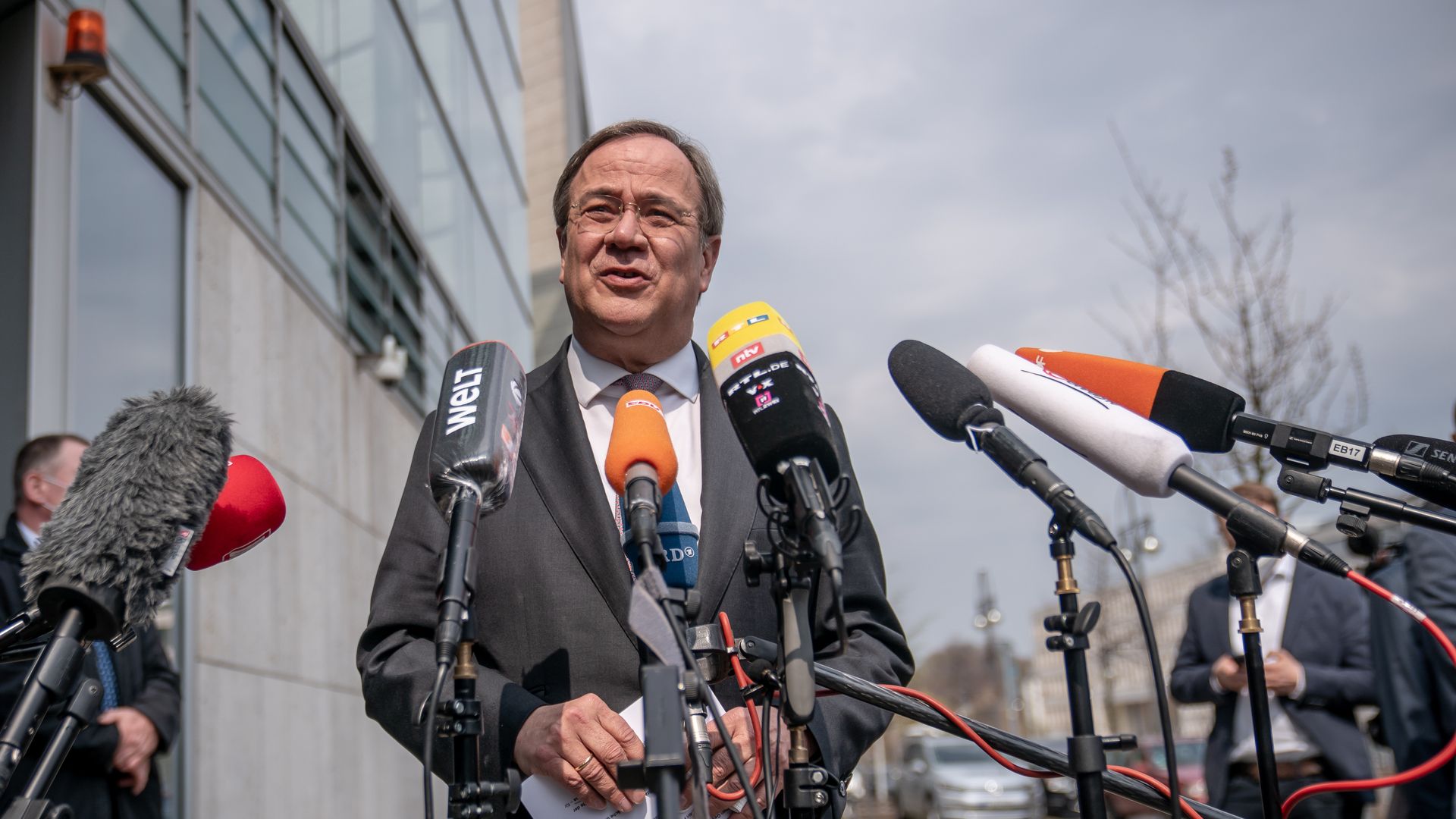Apr 20, 2021 - World
Germany's conservative bloc backs Laschet ahead of first post-Merkel election
Add Axios as your preferred source to
see more of our stories on Google.

Photo: Michael Kappeler/picture alliance via Getty Images
Add Axios as your preferred source to
see more of our stories on Google.

Photo: Michael Kappeler/picture alliance via Getty Images